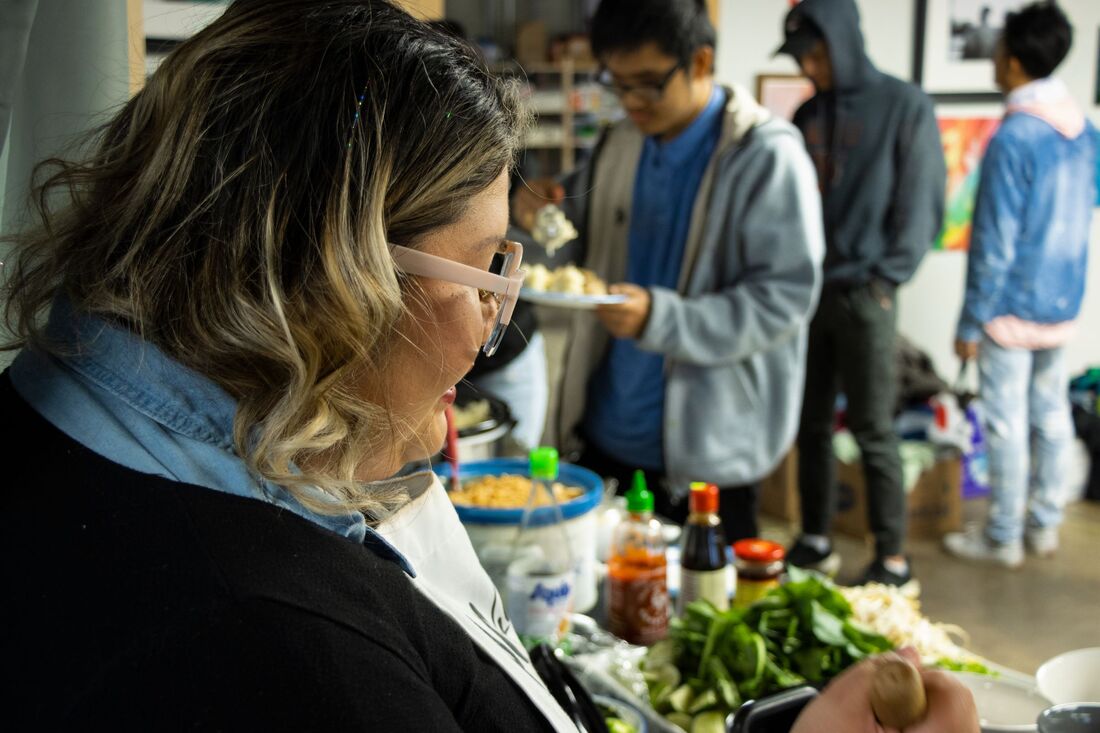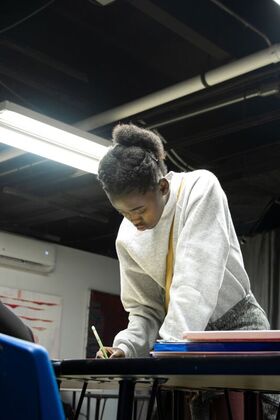Iowans Thrive Blog
Featuring stories, research, and news on Iowa's movement to respond to ACEs
|
|
|
Whenever Christine Her’s father desperately missed his parents, he would take their scarf up into the mountains and smell it. Living in Laos at the end of the Vietnam War, her father, along with millions of Hmong people, fled genocide by living in the jungles. At night, he and other boy soldiers, had to patrol the area, avoiding gunfire. They barely had anything to eat. Finally, after two years, a group of boys decided to flee to Thailand without saying goodbye to family. They intended to return with supplies. But as they made the treacherous journey across the river into Thailand, they were captured by a Thai general, escaped, and then arrested for rushing into the refugee camp together. In jail, they were too weak to fight for their food and nearly died. Eventually, Christine’s grandmother, who had made it to a refugee camp years earlier, came for her father to take him to America. He never did make it back to Laos for his father. Christine’s mother’s family also fled for Thailand and, as they tried to cross the river into the country, their boat nearly sank from the weight of everyone crowded onboard. Once in the refugee camp, her mother did chores before sunrise into the evening. Eventually they resettled in Hawaii, where Christine’s mom was bullied, and they were so poor that each family member had only one outfit. The trauma Christine’s parents faced as Hmong refugees defined them as parents. Growing up in Des Moines, Iowa, Christine’s physical needs were met, but she was always pushed to do better. Her older sister was petite, soft spoken, and valedictorian of her high school class, and on a path to become a doctor. Christine was larger built, full of energy, and into music, art, and community service. “There’s a lot of perception of what a good Hmong girl should be, and I was not that,” Christine says. She often heard: You’re too fat, too loud, not smart enough. I think it does something to you, because you grow up navigating in this world and thinking your parents don’t even love you so no one can love you. - Christine Her, Executive Director, ArtForce Iowa  She also felt pulled between being Hmong and American. Despite the role Hmongs played for the U.S. in the war, they were never talked about in history lessons. Meanwhile, her father’s friends were dying from heart disease or a stroke. Christine’s father had a heart attack at age 45. These experiences pushed Christine into a state of hopelessness. At age 16, she tried taking sleeping pills to commit suicide, not realizing the medication she took couldn’t kill her. In her 20s, she worked in a job that supported refugee families, but her parents didn’t approve because she didn’t earn much money. Christine grew angry and began to isolate from friends. Then in 2018, as the new executive director of ArtForce Iowa, Christine learned about The ACE Study and the impact of trauma. ACEs really put into perspective that it wasn’t that my parents didn’t want to give me what I needed growing up, it was that they couldn’t. They didn’t have anyone to hold them either. They got through it with their parents saying, ‘Tough it up, stop crying.’ And that’s how they treated me, and I was like, ‘I need someone to hold me and let me cry.’ The Hmong culture doesn’t have a word for “trauma” or "mental health," Christine says, but by talking about trauma, Christine has finally been able to have conversations with her parents about how she felt growing up. Her father has told Christine more of his story and her mother has been able to explain how her words were intended to protect her daughter. The staff at ArtForce Iowa has also been on a journey of learning and healing, which has changed how they approach art workshops for youth who are in the juvenile justice system or who are immigrants and refugees. Yvette Zaród Hermann, Arts Outreach Educator, says this new approach lives out what the founder of the organization wanted to accomplish by not having another kid discover they are an artist in prison. People internalize these stories about who they are, and art is a powerful way for someone to ignite their own creative power. - Yvette Zaród Hermann, Arts Outreach Educator, ArtForce Iowa  Learning about ACEs, and especially the importance of caring connections in someone’s life to respond to trauma, has guided staff in the work. Whereas they might have encouraged youth to share what has happened to them, they now focus on maintaining an environment of safety, compassion, and shared power, and to allow those stories to come out as they want to share. “I think that’s the most healing-centered thing that we do,” says Yvette. “We don’t fish for information and we also prevent young people from doing it to each other. We find power in the images that show up in their art. It’s amazing what they will tell us.” In workshops many youth artists draw eyes and many of those eyes are crying. Or a phrase comes out in their poetry questioning the good in the world. The staff also have had more conversations with each other about their own traumas and how to help each other self-regulate when stressed or overwhelmed. The journey has prioritized healing and building self-confidence so youth can return to challenging situations with a sturdier foundation. Youth artists say that ArtForce has changed them in these ways:
"They helped me open up and grow my personality." "They helped me not get suspended from school and helped me handle my feelings." "They changed my mind. They helped me become a deep thinker." “Our intent and hope are to do more than create spaces where youth artists are their best artistic selves,” Christine says. “We are not healers, but with the help of our young people, we can foster a sense of belonging, self-reliance, community, and self-love. Together we can change the world to be more kind, more loving, and safer, where everyone thrives." Comments are closed.
|
Hi!Here we share what's happening in Iowa to respond to adverse childhood experiences (ACEs). Topics |
|
Connect with us
|
Iowa ACEs 360
501 SW 7th St., Suite G Des Moines, IA 50309 |